Buying a car with cash isn’t just about avoiding payments-it’s about control, cost, and long-term freedom.
Most people think paying cash for a car means you’re being frugal. But here’s the truth: buying a car with cash isn’t always the smarter move. Sometimes, financing makes more sense-even if you have the money. The real question isn’t whether you can afford it outright. It’s whether you should.
Let’s say you’ve saved $25,000. You walk into a dealership ready to pay cash for a new Honda Civic. The salesperson smiles, hands you the paperwork, and says, "Great choice!" But what if they also offered you 0% APR for 72 months? Would you still pay cash? Most people don’t even ask. And that’s where they leave money on the table.
Why paying cash feels safe-until it doesn’t
Paying cash feels like winning. No monthly bills. No lender breathing down your neck. No interest charges. That’s the fantasy. And it’s not wrong. But it’s incomplete.
When you pay cash, you’re locking up a big chunk of your liquid assets. That’s $25,000 that can’t earn interest, can’t be invested, and can’t act as a buffer if your water heater breaks or your car needs a $4,000 transmission repair next month. In 2024, the average unexpected car repair cost $550. One major failure can hit $2,000 or more. If you drained your savings to buy the car, you’re now one flat tire away from financial stress.
Here’s what most people don’t realize: the money you use to pay cash could be working for you elsewhere. If you invested $25,000 in a low-risk index fund earning 6% annually, you’d make about $1,500 in the first year. That’s more than most car loans cost after taxes.
How financing can actually save you money
Financing sounds expensive-until you compare it to what you’re giving up.
Take a 60-month loan at 4.5% APR on a $25,000 car. Your monthly payment? Around $470. Total interest? Just over $2,800. That’s a lot, right? But here’s the twist: if you kept that $25,000 in a high-yield savings account earning 4.25%, you’d earn about $1,060 in interest over five years. Add in the fact that you can deduct auto loan interest on business vehicles (if you’re self-employed), and the real cost of financing shrinks even more.
Some dealerships offer 0% financing on new cars-especially during end-of-year clearance events. If you qualify, you’re getting a free loan. No interest. No penalty for paying early. That’s not a trap. It’s a gift. And if you have the cash to pay outright, taking 0% financing lets you keep your money invested or saved while you drive.
The hidden cost of paying cash: opportunity cost
Opportunity cost isn’t a buzzword. It’s the real price of every financial choice.
When you pay cash, you’re not just spending money. You’re choosing not to use that money in other ways. That $25,000 could have gone into your retirement account. Paid down high-interest credit card debt. Or even covered a down payment on a rental property. In Asheville, where home prices are rising, $25,000 could be the difference between renting and owning.
People who pay cash for cars often brag about avoiding interest. But they rarely mention the interest they lost by not investing. Over 10 years, $25,000 invested at 7% grows to over $49,000. That’s $24,000 in free money you gave up by paying cash.
It’s not about being rich. It’s about being strategic.
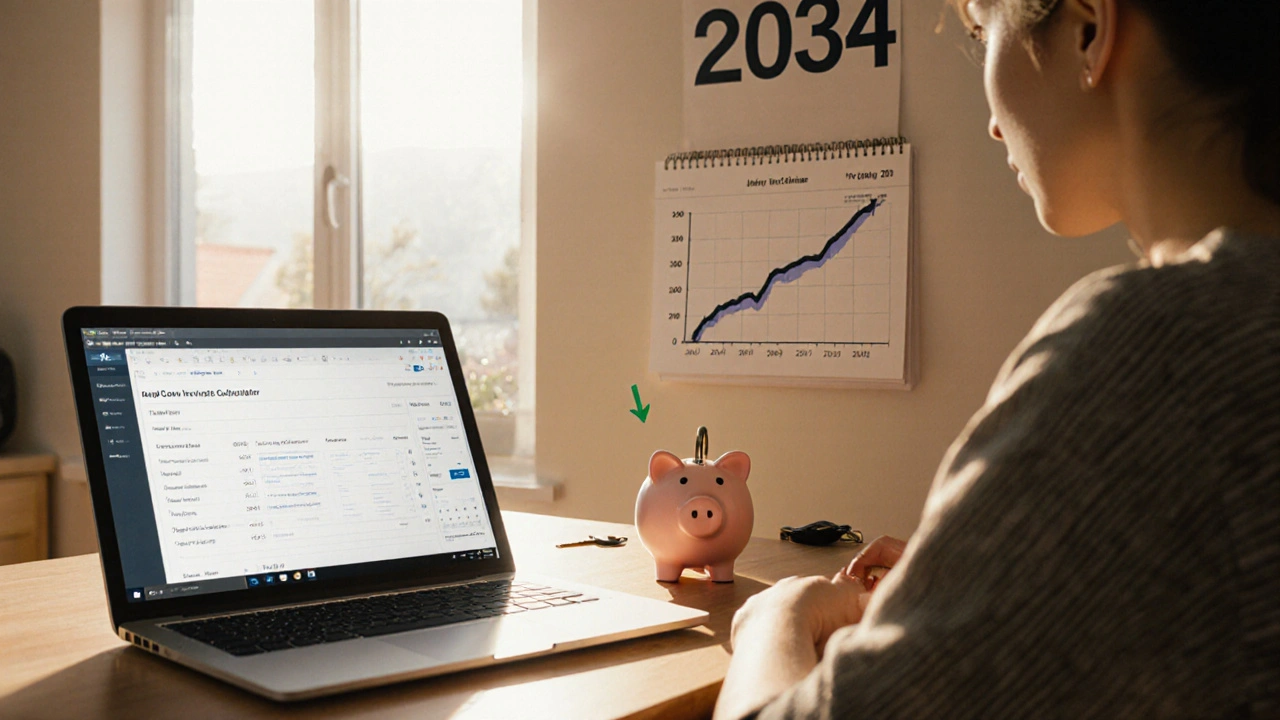
When financing is the only smart move
There are times when paying cash is a mistake. Here are the big ones:
- You’re buying a used car with a warranty that expires in 6 months. Financing lets you stretch payments over 48 months while the warranty covers repairs.
- You have high-interest debt (like credit cards at 18%+). Paying off that debt first saves you more than any car loan interest costs.
- You’re self-employed and need to write off vehicle expenses. Financing gives you depreciation and interest deductions you can’t get with cash.
- You’re building credit. A small, on-time car loan can boost your score faster than paying cash.
In 2025, the average credit score in the U.S. is 715. But if you’ve never had an installment loan, your score might be stuck in the 600s-even with perfect credit card habits. A car loan can be the key to unlocking lower rates on mortgages, insurance, and even apartment rentals.
What dealers don’t tell you about cash offers
Dealers love cash buyers. Why? Because cash deals close fast. And they make more profit on the back end.
When you pay cash, you lose negotiating power. Dealers know you’re not comparing loan terms. They know you’re not shopping rates. So they’ll often charge you more upfront. In a 2024 J.D. Power study, cash buyers paid an average of $1,200 more than financed buyers on the same vehicle.
Here’s the trick: always ask for the same price whether you’re paying cash or financing. If they say, "We can’t give you that price on cash," walk away. That’s not a discount-it’s a markup.
And never, ever let them push you into extended warranties or service contracts at the point of sale. Those are where dealers make their real money. You can buy those later, cheaper, and without pressure.
How to decide: cash or financing?
Here’s a simple decision tree:
- Do you have 6+ months of living expenses saved? If yes, financing is probably fine.
- Can you get 0% APR or under 3% APR? If yes, take the loan.
- Do you have credit card debt over 7% interest? Pay that off first.
- Are you self-employed or planning to deduct the car? Financing gives you tax advantages.
- Do you need to build or rebuild credit? A small loan helps.
- Is the car a depreciating asset you’ll sell in 3 years? Pay cash if you can afford the hit.
If you answered yes to any of the first five, financing is likely the better move. If you answered yes only to the last one, then pay cash.
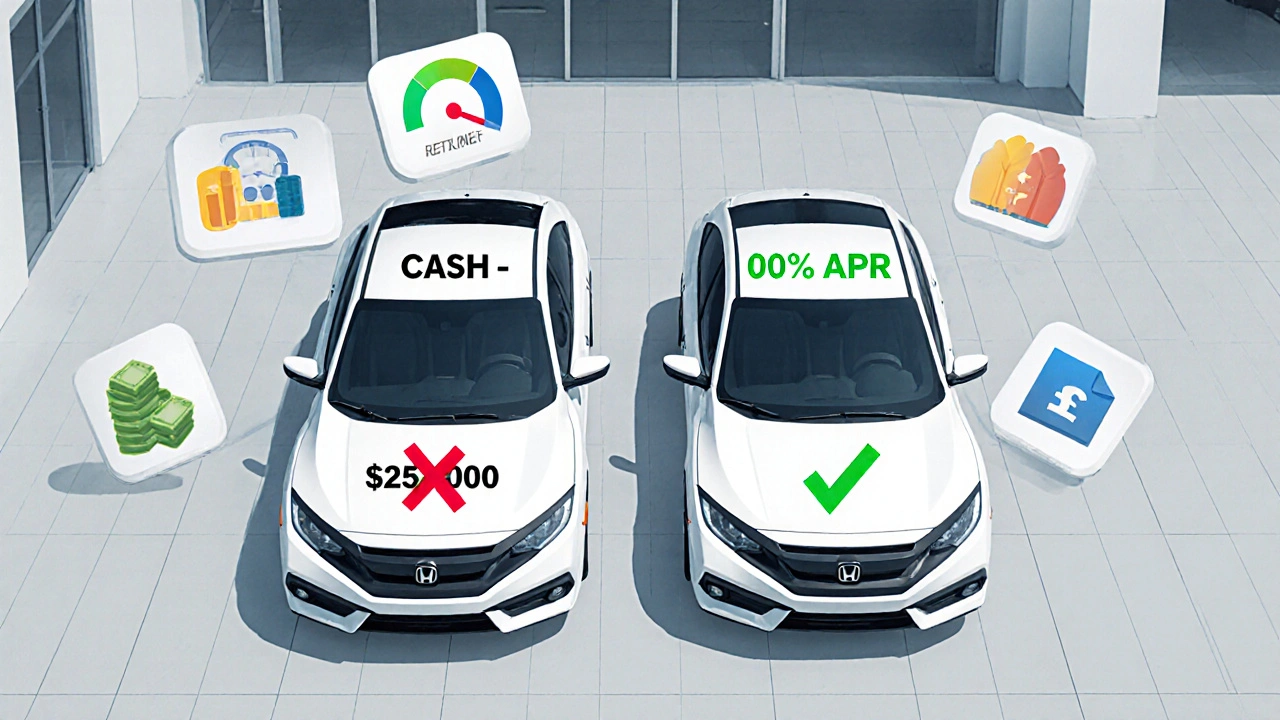
What most people get wrong about car loans
People think longer loans mean higher risk. Not true. A 72-month loan at 3% is cheaper than a 48-month loan at 6%. The real danger isn’t the term-it’s the total cost.
Never finance more than 100% of the car’s value. That’s called being upside down. You owe more than the car is worth. If you crash it or need to sell it, you’re stuck paying the difference.
Also, avoid balloon payments. They sound like low monthly payments, but you’re forced to pay a huge lump sum at the end. Most people can’t afford it-and end up refinancing at a higher rate.
And never let the dealer run your credit before you’ve decided on your budget. That’s a hard inquiry. Multiple inquiries in 30 days can drop your score. Get pre-approved from a bank or credit union first. Then walk in with your offer.
Final rule: Don’t buy a car you can’t afford to maintain
Whether you pay cash or finance, your real cost isn’t the sticker price. It’s the insurance, gas, maintenance, and registration.
A $25,000 car might cost $1,200 a year to maintain. A $40,000 luxury SUV? $2,500+. That’s $200 a month extra. If you’re financing $40,000 at 5%, your payment is $750. Add $200 for upkeep. That’s $950 a month. That’s more than many people pay for rent in Asheville.
Buy the car you can afford to own-not just the one you can afford to buy.
Bottom line: Cash isn’t king. Strategy is.
Paying cash for a car isn’t inherently better. It’s just one tool. Sometimes it’s the right one. Sometimes it’s the worst choice you can make.
What matters is your financial position, your goals, and your alternatives. If you can get 0% financing and invest your cash, do it. If you’re debt-free and want peace of mind, pay cash. But don’t do it because you think it’s "the responsible thing." Do it because it makes sense for your money, not your ego.
The best car buyers don’t pay cash because they’re frugal. They pay cash-or finance-because they’re smart.
Is it better to pay cash for a car or finance it?
It depends. If you can get a low-interest or 0% loan and have other places to invest your cash, financing often makes more sense. Paying cash gives you peace of mind and avoids interest, but it ties up money that could earn returns elsewhere. The best choice balances your financial goals, emergency savings, and debt situation.
Can financing a car help my credit score?
Yes. A car loan adds an installment account to your credit mix, which makes up 10% of your FICO score. If you make payments on time, it can boost your score by 20-50 points over 6-12 months. This is especially helpful if you only have credit cards.
Why do dealers push cash buyers to buy extras?
Dealers make most of their profit from add-ons like extended warranties, GAP insurance, and service contracts-not the car itself. Cash buyers often don’t compare financing terms, so dealers assume they’ll accept upsells. Always say no to extras at the counter. Shop them later online.
Should I finance a car if I have the cash saved?
Only if you can get a rate below 3% and have a better use for your cash-like investing, paying down high-interest debt, or building your emergency fund. If your savings are just sitting in a low-yield account, financing lets you keep that money working for you.
What’s the worst mistake people make when buying a car?
Buying a car they can’t afford to maintain. The monthly payment is only part of the cost. Insurance, fuel, repairs, and registration add hundreds each month. A $30,000 car might cost $500 a month to own-not just $500 to buy.

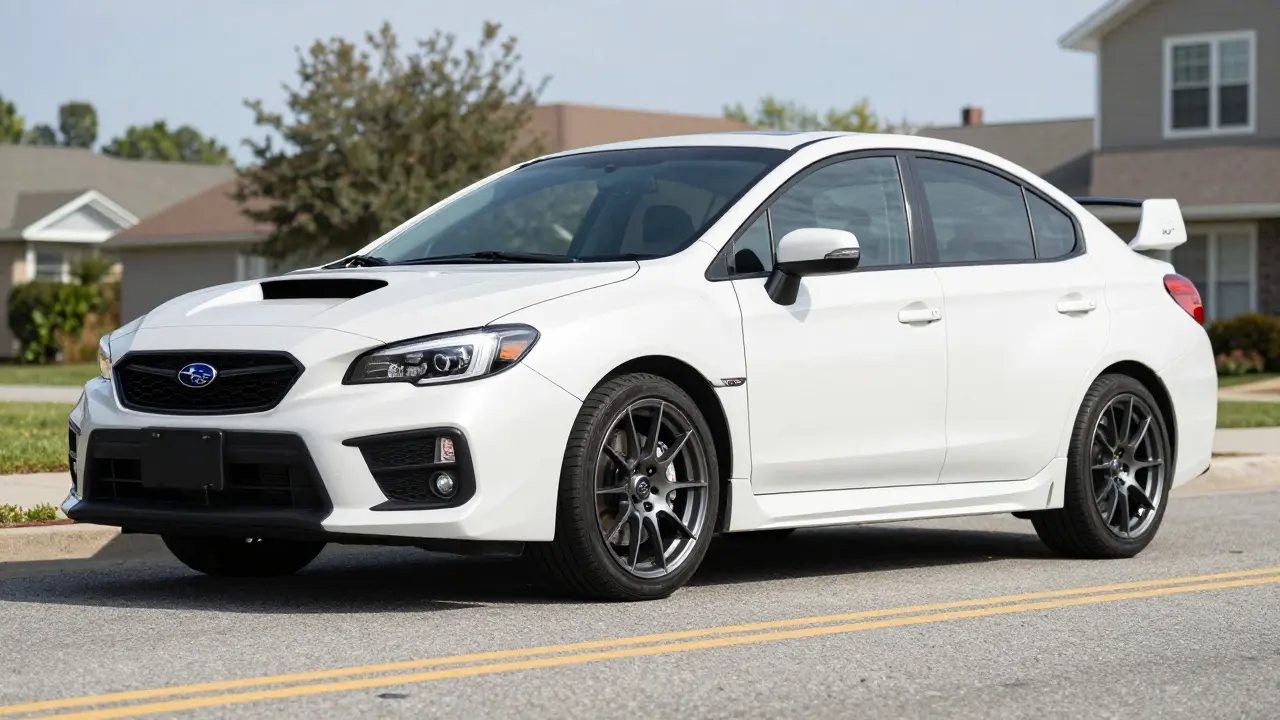
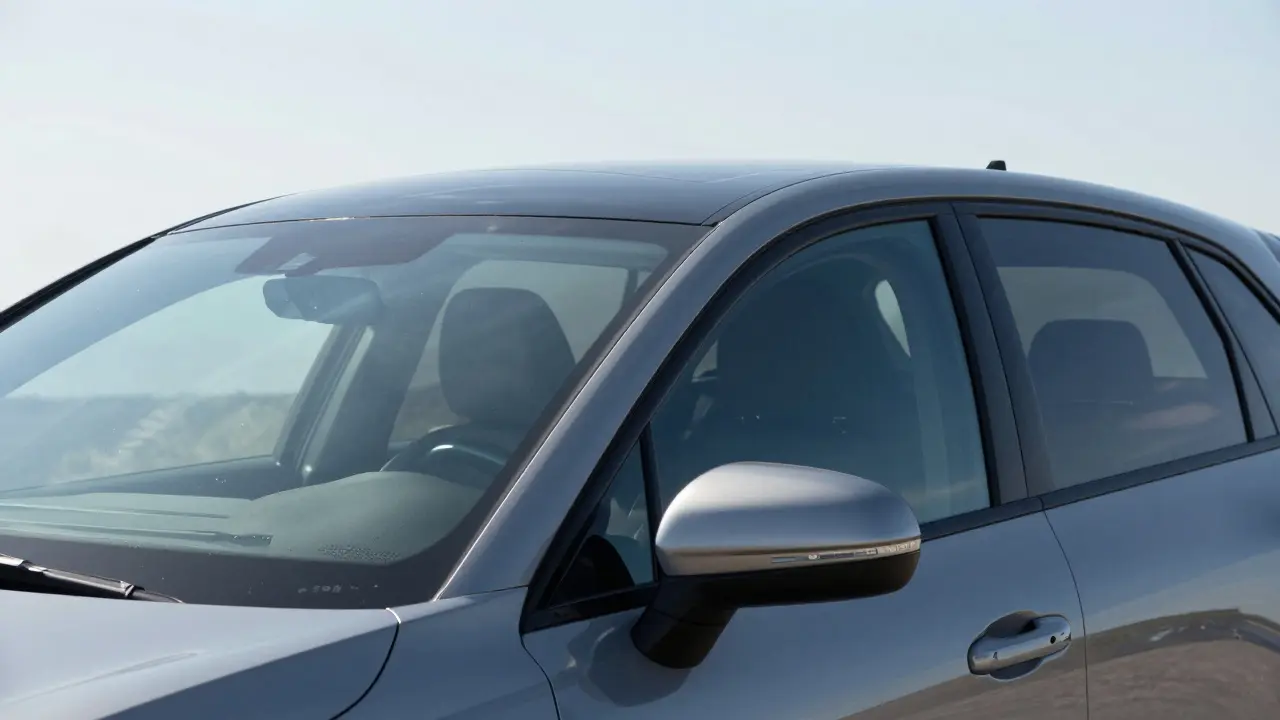
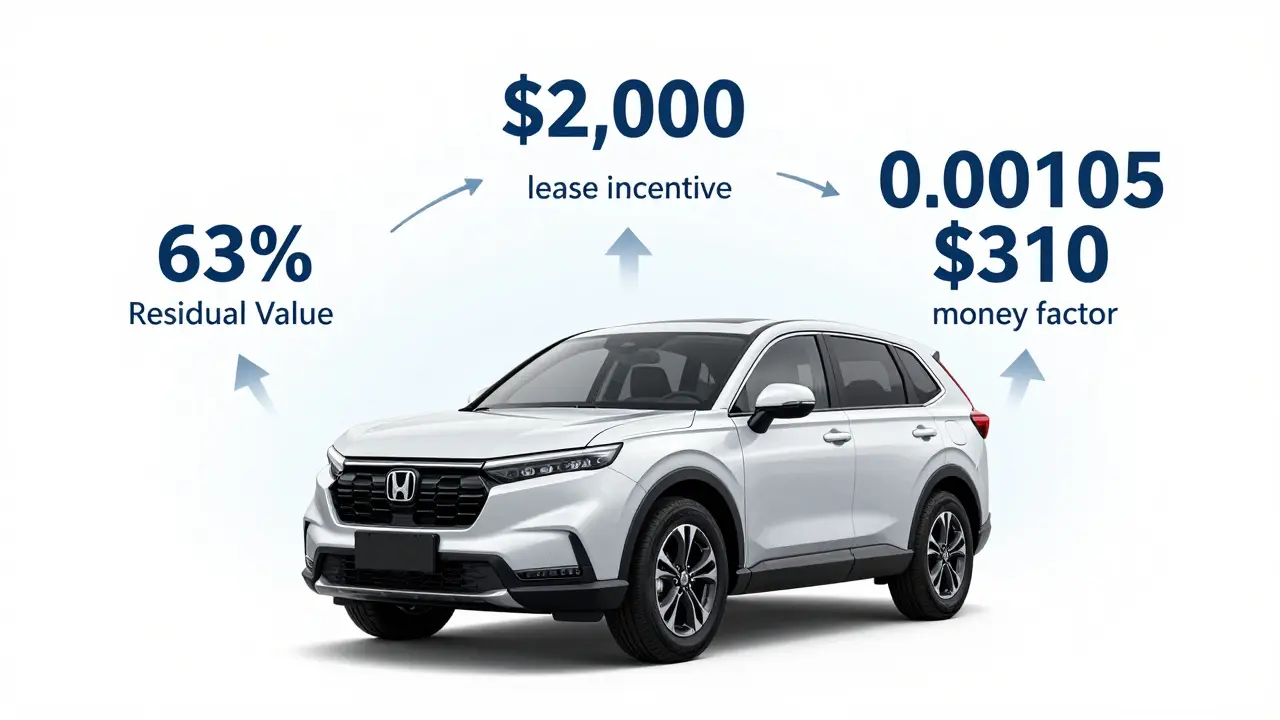

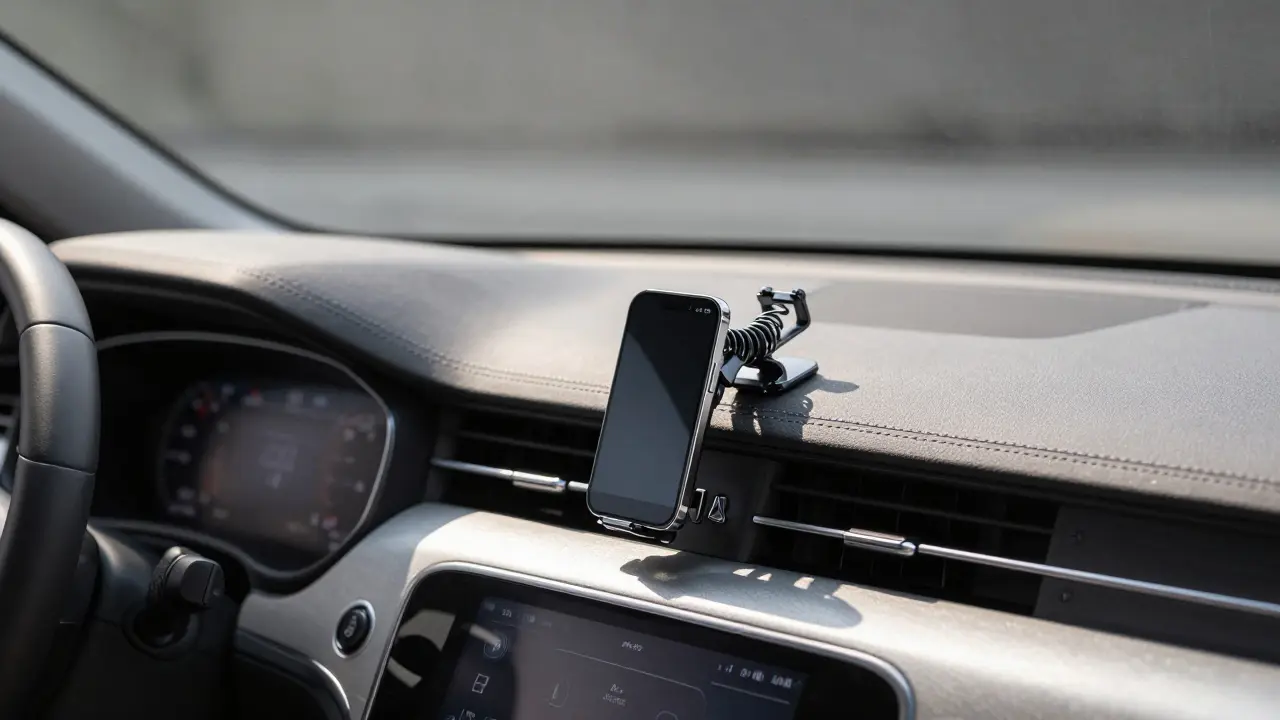
Glenn Celaya
November 5, 2025 AT 03:28Jen Becker
November 5, 2025 AT 19:57Wilda Mcgee
November 6, 2025 AT 19:20Rob D
November 8, 2025 AT 02:00Franklin Hooper
November 9, 2025 AT 21:56Glenn Celaya
November 10, 2025 AT 23:56Samuel Bennett
November 11, 2025 AT 12:04Ryan Toporowski
November 12, 2025 AT 17:12Madeline VanHorn
November 14, 2025 AT 00:56